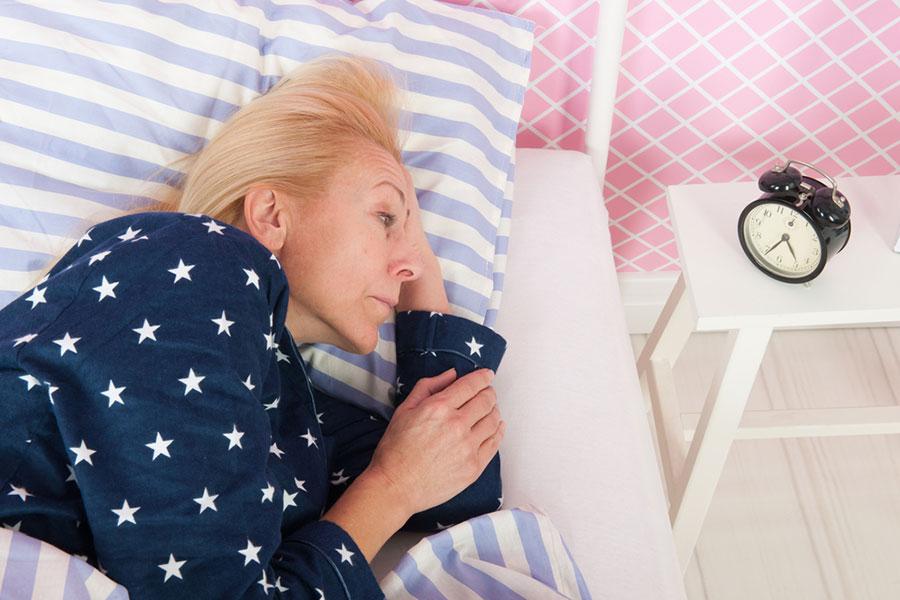Around 61% of women report experiencing sleep problems during menopause, such as insomnia, night sweats, and hot flashes. Fortunately, there are several tips and strategies that women can try to enjoy better sleep during this transition. In this article, we’ll explore some evidence-based methods to help improve sleep quality and duration.

- Follow a consistent sleep schedule
Setting a consistent sleep schedule and sticking to it as closely as possible can help regulate the body’s internal clock and improve sleep quality. A study published in the Journal of Clinical Sleep Medicine found that a regular sleep schedule was associated with better sleep quality in postmenopausal women. - Limit exposure to blue light
Blue light emitted by electronic devices such as smartphones, tablets, and computers can interfere with the body’s natural sleep-wake cycle, making it more difficult to fall asleep. A study published in the Journal of Biological Rhythms found that exposure to blue light during the evening hours led to a delay in the body’s melatonin production, which can negatively affect sleep. To minimize blue light exposure, consider using blue light blocking glasses or avoiding electronic devices for at least an hour before bedtime. - Create a sleep-conducive environment
Creating a comfortable and relaxing sleep environment can help promote better sleep. This includes keeping the bedroom cool, dark, and quiet. A study published in the Journal of Sleep Research found that a cool bedroom temperature was associated with better sleep quality and duration in menopausal women. - Practice relaxation techniques
Stress and anxiety can interfere with sleep, so practicing relaxation techniques such as deep breathing, meditation, or yoga can help calm the mind and promote better sleep. A study published in the Journal of Women’s Health found that practicing yoga improved sleep quality and reduced insomnia symptoms in postmenopausal women. - Consider hormone therapy
Hormone therapy (HT) is a treatment option for women experiencing severe menopause symptoms, including sleep disturbances. HT involves the use of estrogen or a combination of estrogen and progesterone to help alleviate symptoms. A study published in the Journal of Clinical Sleep Medicine found that estrogen therapy improved sleep quality in postmenopausal women with hot flashes.
In conclusion, menopause can cause sleep disturbances, but following these tips and strategies can help improve sleep quality and duration. A consistent sleep schedule, limiting exposure to blue light, creating a sleep-conducive environment, practicing relaxation techniques, and considering hormone therapy are all evidence-based ways to ease menopause-related sleep disturbances.








